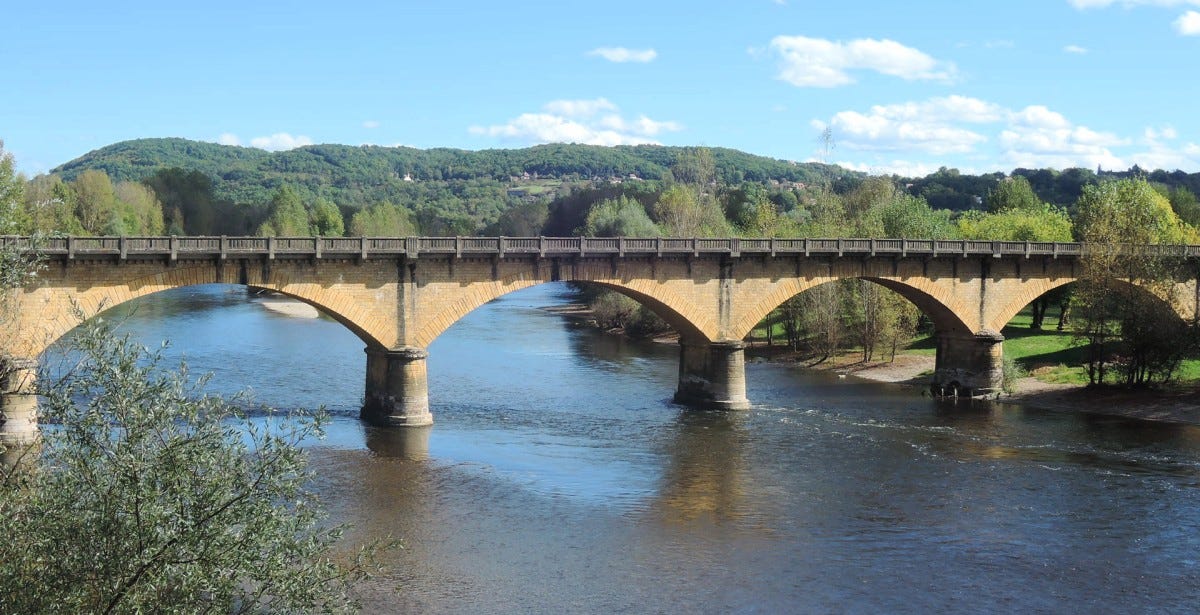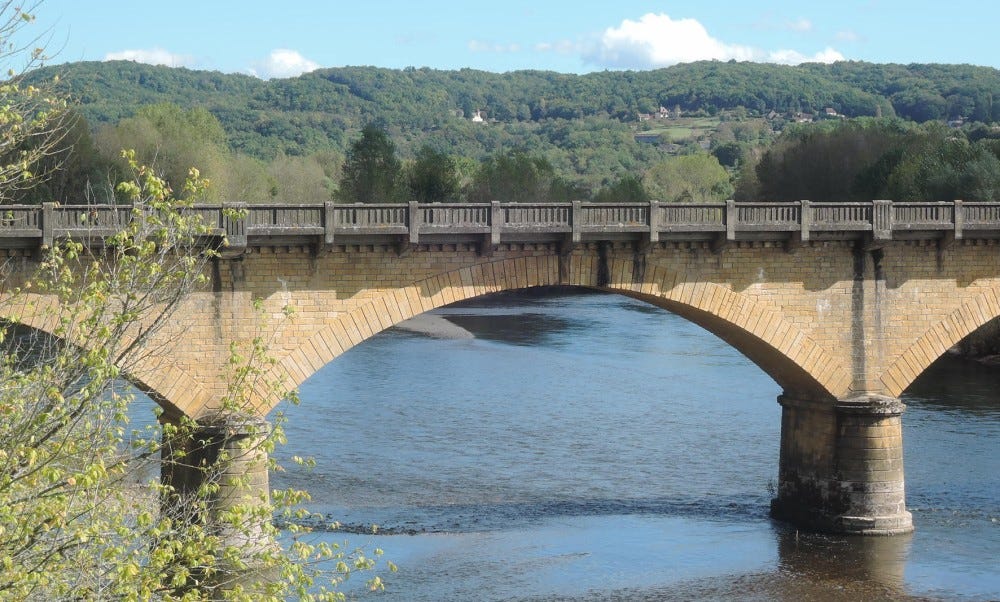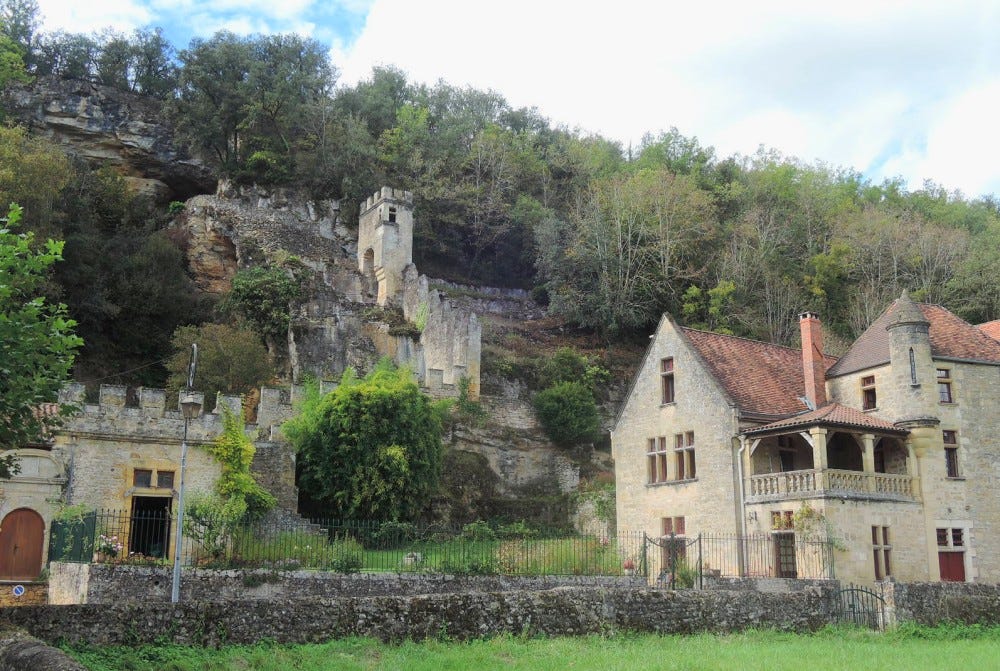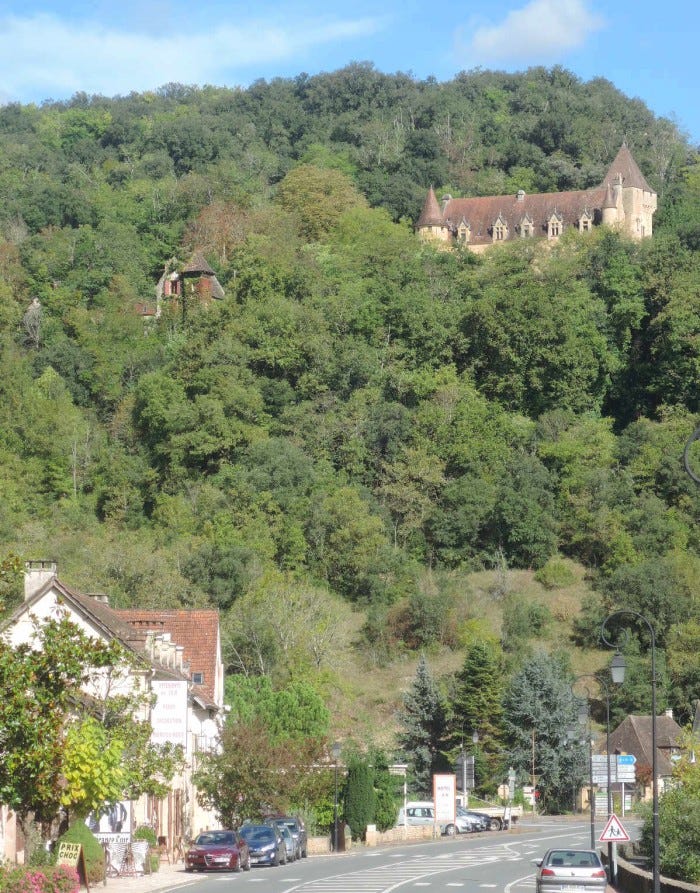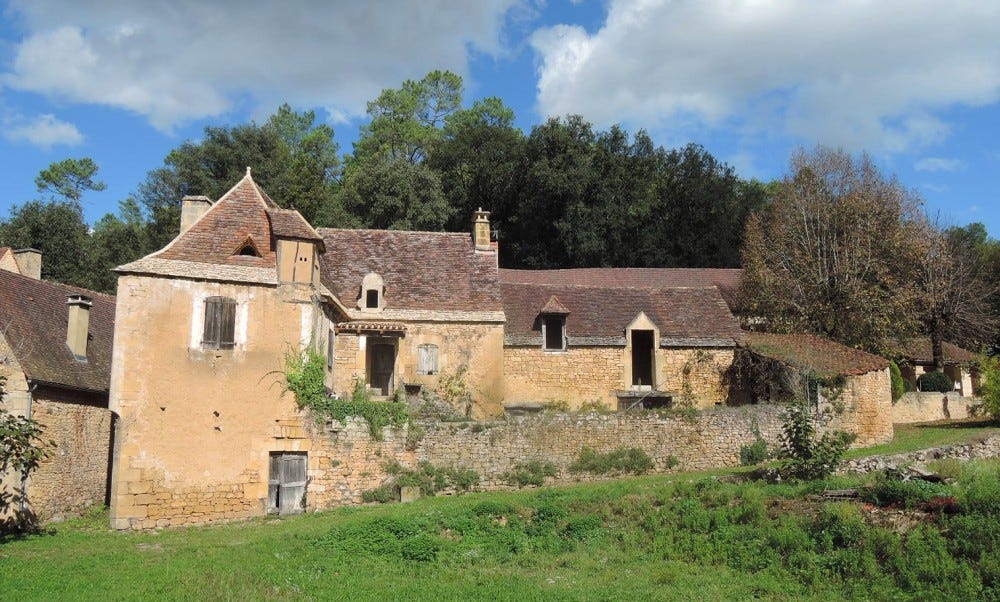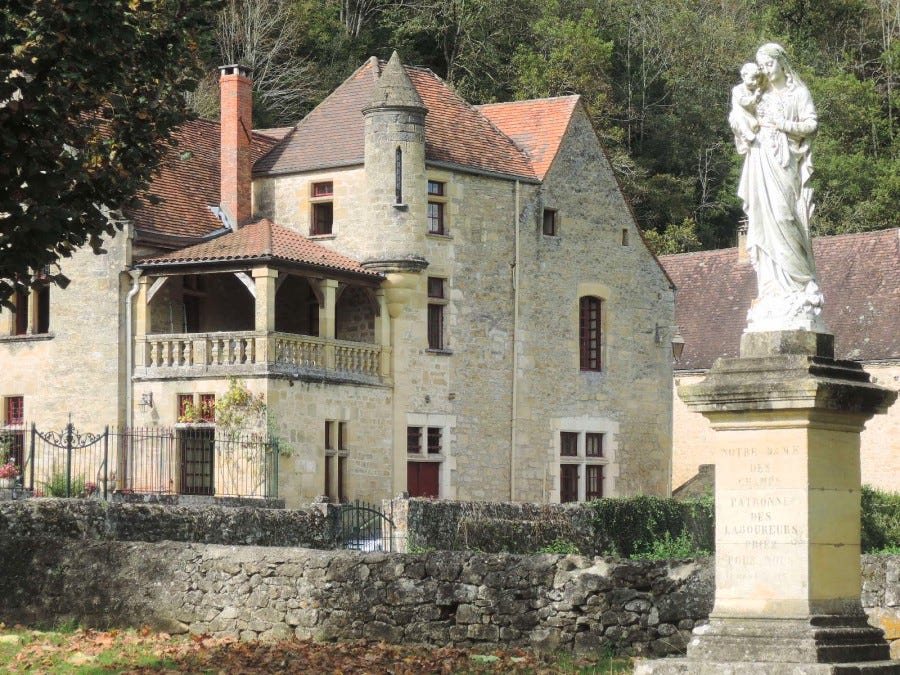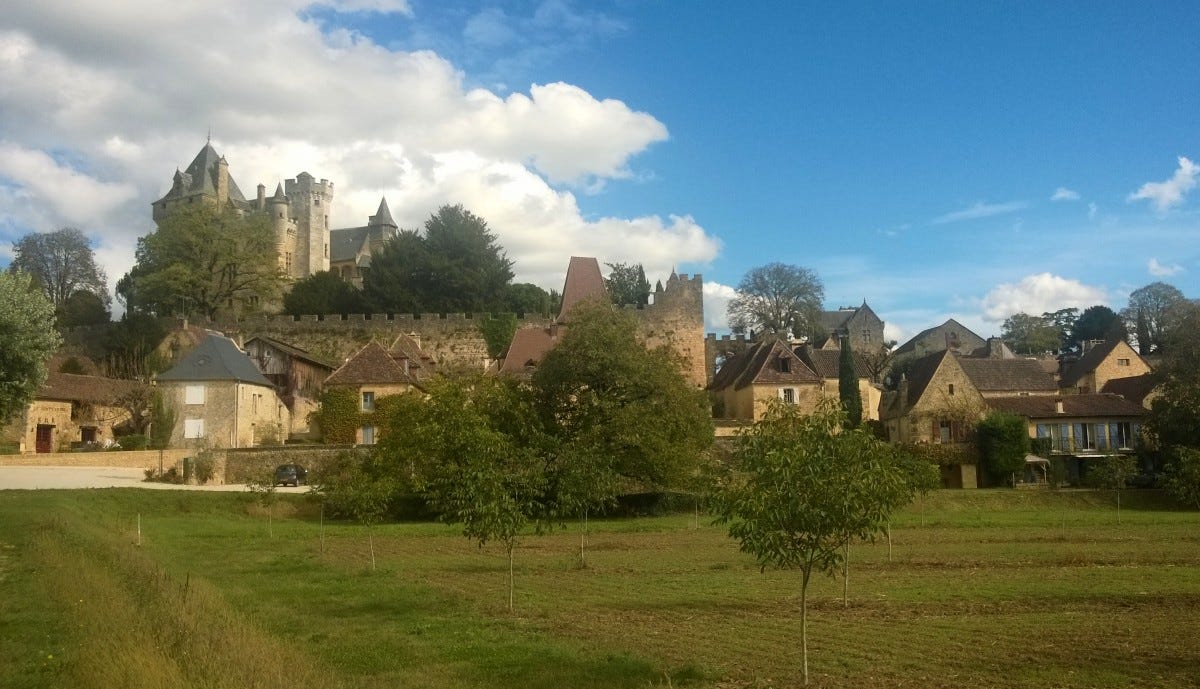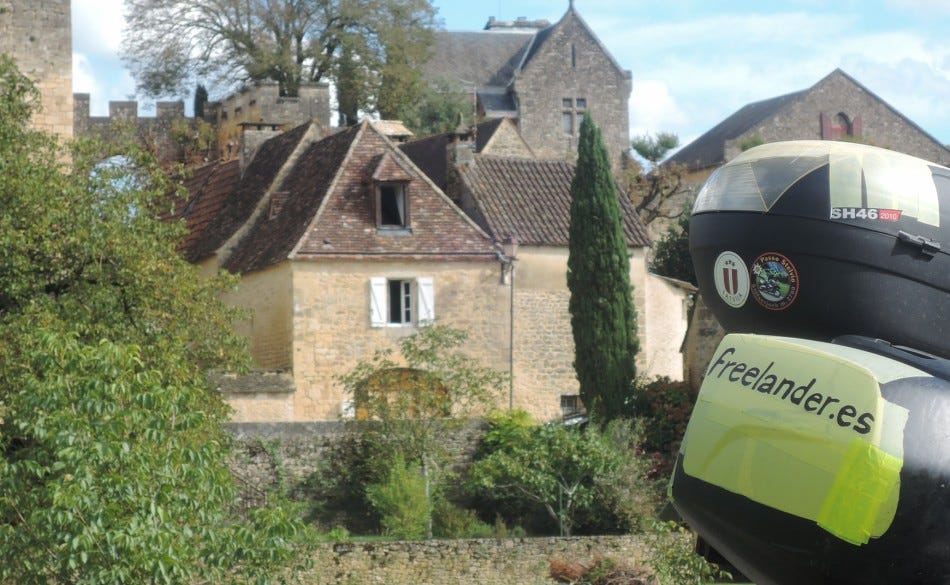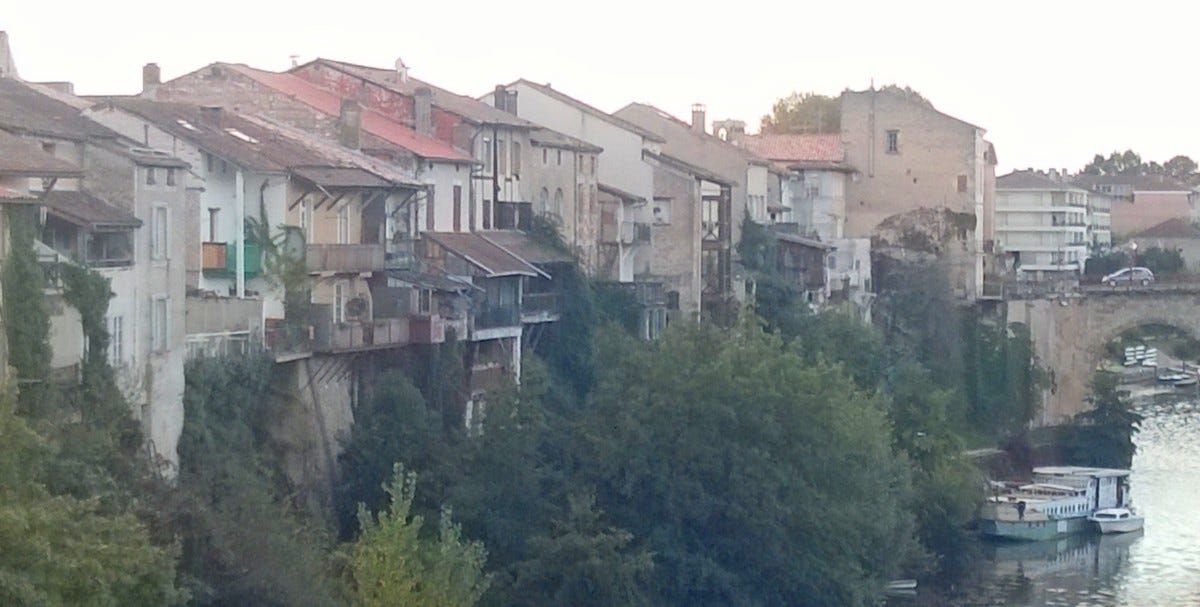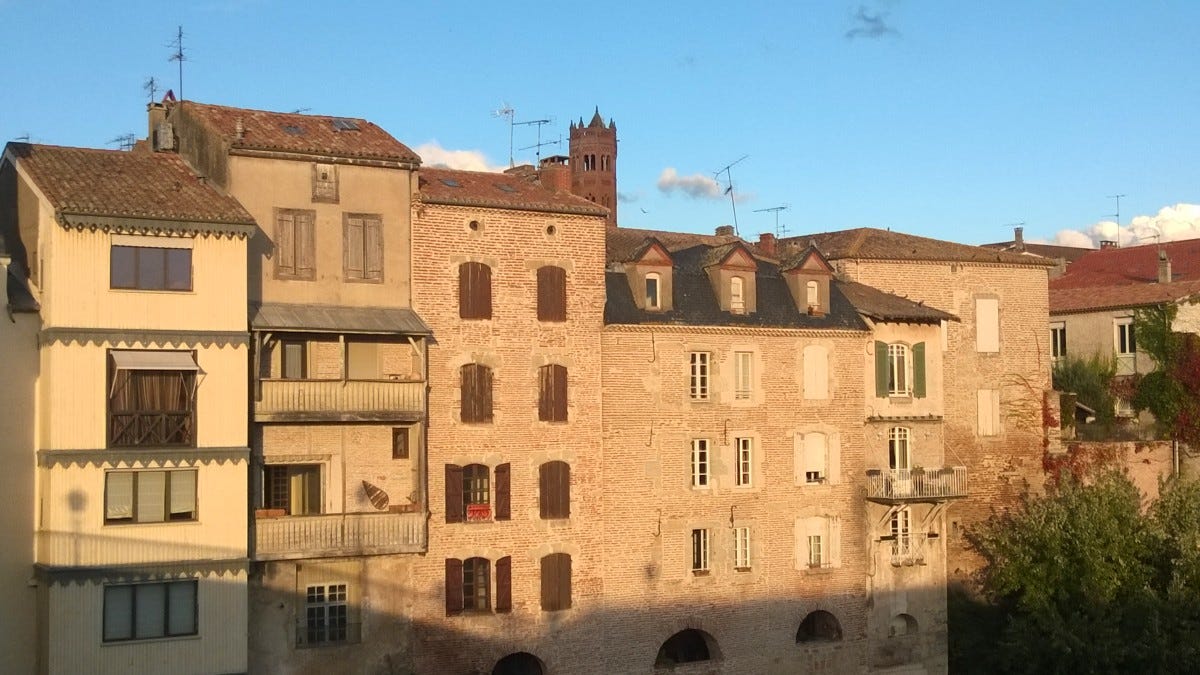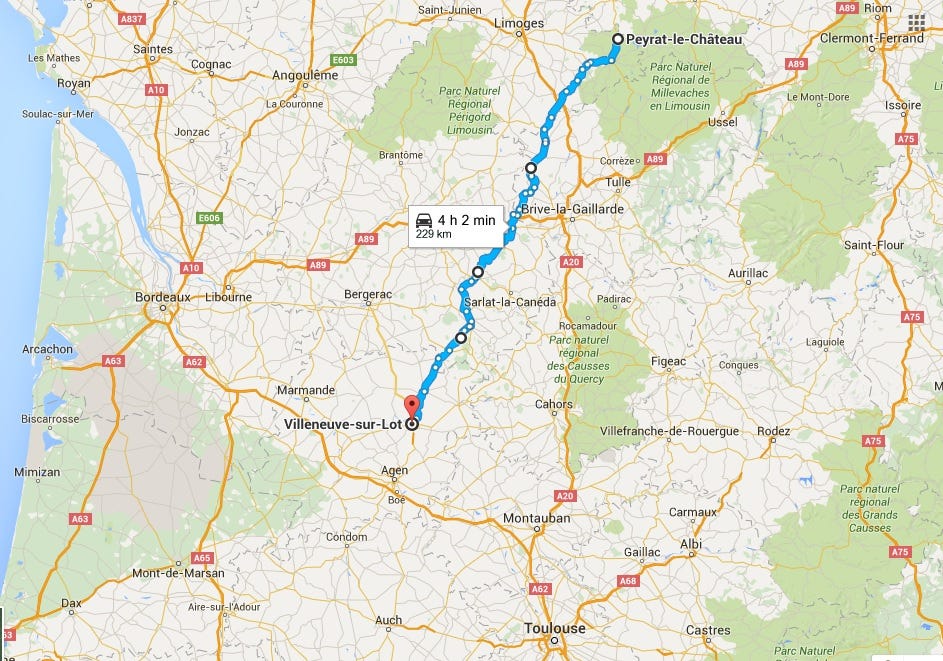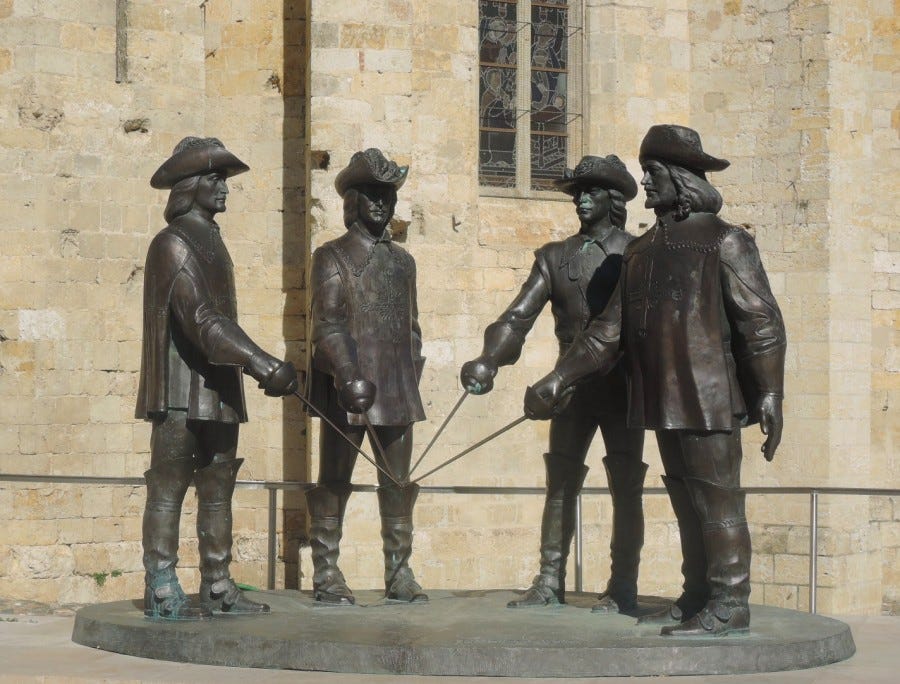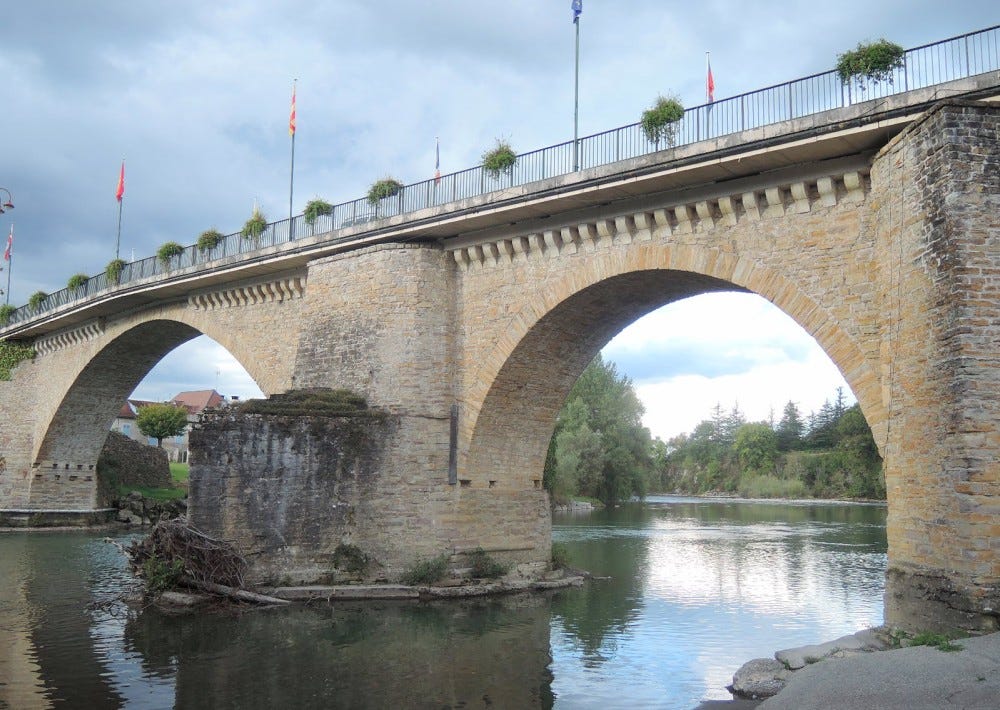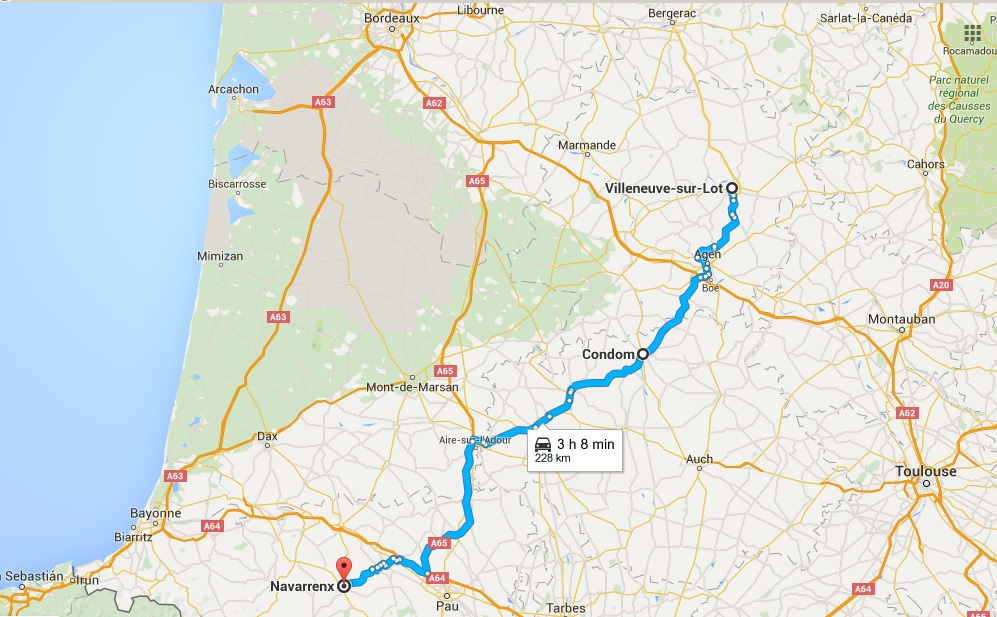France is getting better by the day, leaving me openmouthed. If I liked it before, now I'm fascinated. Who would say? All of my life disliking it, and now it turns out to be -arguably- Europe's most beautiful country. I thought that, after Norway, I had seen everything, but I was wrong.
This morning I've set off sooner than usual because of my lodging's early top breakfast time (10 a.m.) Heading south-southwest, I approach the vast fields of Aquitaine. I thought I'd come into an uglier region than the one behind me, but fortunately I'm still crossing a lot of lovely places, like Dordogne’s hills, where every landscape is prettier than the previous one and every valley's charm is surpassed by the next.
The Limousin region and Vézière and Dore valleys, how impressive they are! Fields and hills dressed up in fall colours, full of contrasts, meadows grown green, yellowish leaves, dark pine woods, fairy-tale stone and wood hamlets, gardens behind the railings on masonry walls, dashing buildings with arches and colonnades, turreted palazzos with terraces and balustrades... a superb carousel of landscapes.
But in the last minute I overplay my hand and suddenly I descend to the vast and unappealing countryside of Lot-et-Garonne department. One of those warm valleys (temperature has rised six degrees in just ten miles), busy and not too pleasant.
By mid afternoon I was already done with my daily mileage. I should have rather stayed at any of the nice lodgings I went past, but I wanted to stretch out the stage and, by the time I realize where I've got into, it is too late to hit the breaks. My fault. Regretfully I've left behind a handful of much more alluring, peaceful and delightful places than this. I should have guessed, though, when I checked the map and saw that these are not winding roads. But what's done is done, and I don't mean to go back.
To top it all, most hotels around here are closed, so finding accommodation has not been easy, either. It has taken me one hour. Some economic crisis must have stricken hard this area. The first town I tried in — an ugly and smelly one — had no lodgings whatsoever, which was in fact a relief. In the next one, where online maps and road signs said there are five hotels, it turns out they're all shut down. Finally I've come to Villeneuve-sur-Lot, not too bad a town after all, but no match for the ones I went past earlier. I'm staying at a little hotel in a quiet neighbourhood, by a square with almost no traffic; but the guests in the upper room are noisy and the floor is wooden, so let's see how I manage to sleep. Reception is a tiny cubicle hardly deserving that name, looking rather like a wardrobe. The receptionist is also short, merry, tipsy, smelling of alcohol.
I'm now taking a stroll, and I realize that many French citizens still live in this region of Morocco. There are many houses for sale — another effect of the crisis, I reckon — some of which look quite neat and are beautifully located on the riverbanks, the best areas in town, by far.
Sitting at a bench in a small park full of poplars I contemplate the houses looking over the river, merrily lit by the setting sun; and for a while now, a sound is making me evoque nostalgic, unexpected memories: the three tolls that, at fifteen minutes intervals, summon the parishoners to mass; a custom also existing in my homeland. It's many years since I last heard them. Funny that I had to come to Aquitaine for reviving such a remembrance.
And it's another new day. I've barely been granted four hours of sleep because hideous Miss Anxiety, decided as she is to sour the last stages of my journey, with her cold hands snatched my stomach all night long, and still clutches there even while riding, despite the soothing effect it normally has on me. Fourty five miles later I stop in Condom — disgraceful name of a town — for my last-but-one breakfast à la française. There are any croissants left at the cafeteria, but the nice, young and pretty waitress tells me to go get one at the boulangerie around the corner while she serves my coffee. It is common practice in France’s cafeterias to fetch your croissant from somewhere else when they don't have; bar tenders never take it badly and you can have a proper canonical breakfast. These people are serviceable and not fond of raising silly objections. They well deserve the name for good tourism.
This is Gers, the heart of Gascony, home to Alexandre Dumas' d’Artagnan, so in front of the terrace I'm sitting at, by the church wall, there is a statue of such immortal character and the three mousketeers. Then I meander for a while around this typical French, neat and balanced town, quite alluring, all masonry and woodwork, free from loud modernities. And I've got out of Morocco, too: not that there aren't Muslims here, but a lot less than in Villeneuve-sur-Lot. What I do see is quite a few tourists: I've overheard some Spaniards, and two Northamericans, to judge by their unmistakable accent and nasal sonorities.
Then I carry on my southward journey, homeward bound. Despite my day has begun not so good — downcast by anxiety and unrest — it's getting better little by little. I'm crossing a series of beautyful lands of woods and vineyards, fields and soft hills, dotted with farms, castles, towers, churches and abbeys that awake the traveller's interest. Lastly, by mid afternoon, I end up in Navarrenx, a pretty pictoresque village (considered one of France's most beautiful) not far from the Pyrenees, where -at the first try- I find a nice hotel, facing the main square. For the rest, it clearly shows this is Basqueland: the architecture, the style, the place names (as Navarrenx itself suggests) are unmistakably Basque. Drinking a well deserved glass of white wine at the hotel terrace on the rather empty square, I enjoy the lovely late afternoon sun while watching a few children play under the arcades. There is in front of me a building with a Spanish flag on it, a very rare thing to see in France. To the east, a group of cumulus castellatus stretch their darkening towers to the sky. We may get a rainshower.
So, I go for a stroll before the sky gets any worse, as I've tried to do every single day along this journey. Navarrenx lies on the Camino de Santiago; and beyond its southern gate, towards Spain where I will take tomorrow, close to the bridge over Gave d'Oloron, the gendarmes (French rural policemen) are positioned. It is the first time I see them around. I can't help a negative thought towards Spain's twin force, the Guardia Civil: I wish they were as discreet! Spain is still a police state, where the real spirit of democracy is unknown to most citizens.




